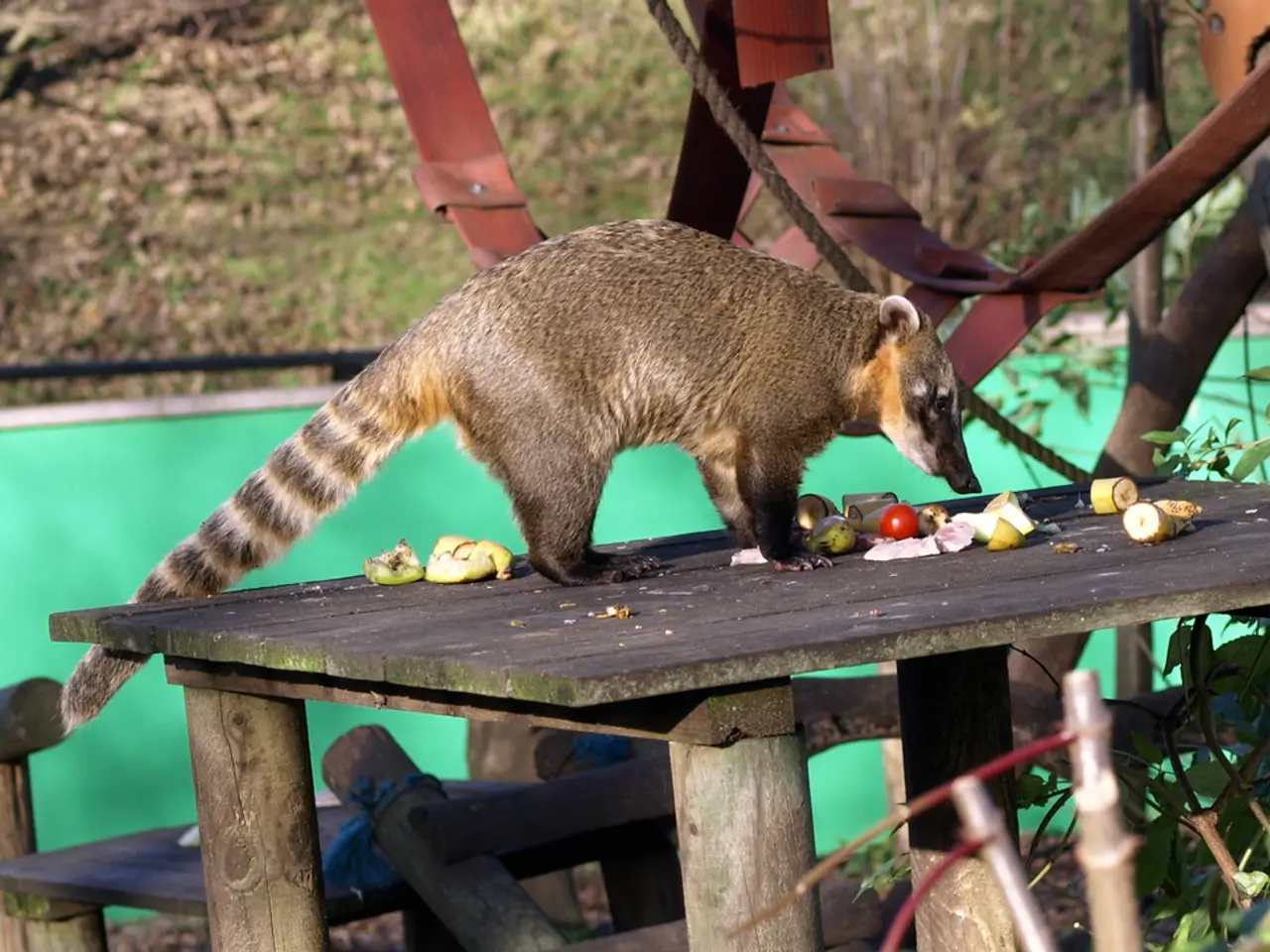Excessive Pesticide Levels Found in Fruits and Vegetables, According to Saxony Greens - Excessive Pesticide Levels Found in Fruits and Vegetables in Saxony Region
In recent news, concerns about high levels of pesticide contamination in fresh produce from Saxony, Germany, have been raised. The former environmental minister of Saxony, Günther, acknowledged the issue, stating that pesticides are ending up in rivers and groundwater[1]. In response, MP Wolfram Günther (Greens) suggested supporting local producers as a potential solution to improve food safety in the region[2].
MP Wolfram Günther (Greens) advocated for this approach in the interest of food safety, citing that more than half of the fresh food tested in Saxony showed pesticide residues, with three-quarters of fresh fruit samples testing positive[3]. Problems with pesticide residues in fresh food mainly occurred with imports from non-European countries, although no specific information was provided about the types of pesticides found in these imports[4].
To address this issue, a combined approach focusing on several strategies can be implemented, considering existing regulations and agricultural practices in Germany:
1. **Promote and Expand Organic Farming**: Organic fruit and vegetable production generally results in fewer pesticide residues. Supporting local producers to transition towards or expand organic cultivation can significantly reduce reliance on chemical pesticides[5].
2. **Implement Good Agricultural Practices (GAP)**: Encouraging farmers to adopt GAP that optimise pesticide use by applying them only when necessary and following recommended doses and pre-harvest intervals helps minimise residues[6].
3. **Enable Local Control and Monitoring**: Saxony can enhance residue monitoring programs by collaborating with federal bodies like the Federal Office for Agriculture and Food (BLE) and the Federal Office of Consumer Protection and Food Safety (BVL), which report on pesticide residues nationally[7].
4. **Support Integrated Pest Management (IPM)**: IPM strategies combine biological, cultural, physical, and chemical tools to manage pests sustainably, reducing pesticide input[8].
5. **Foster Local Soil Health Initiatives**: Managing soil quality is essential to reduce uptake of pesticides and contaminants by crops[9].
6. **Promote Consumer Awareness and Local Markets**: Encouraging consumers to buy directly from local producers, especially those certified organic or following low-pesticide practices, creates market incentives for residue reduction[10].
7. **Regional Policy and Financial Incentives**: Saxony’s government can provide financial incentives, certification support, and educational programs specifically tailored for local producers to reduce pesticide use and residues[11].
By implementing these strategies, it is hoped that the levels of pesticide residues in Saxony's fresh produce can be reduced, while also supporting local producers. It is worth noting that food from Germany and the EU showed lower levels of pesticide residues compared to imports from non-European countries[4]. However, no information was provided about the potential health benefits of consuming fresh food from local producers in Saxony, or the potential health risks associated with consuming pesticide-contaminated food from non-European countries.
References: [1] https://www.tagesspiegel.de/politik/sachsen-umweltminister-guenther-pflanzenschutzmittel-in-hoher-menge-im-saechsischen-boden-und-wasser-verbreitet-sich-a-12969428 [2] https://www.sueddeutsche.de/politik/wolfram-guenther-sachsen-nach-pflanzenschutzmittel-skandal-1.5778938 [3] https://www.tagesspiegel.de/politik/pflanzenschutzmittel-in-saechsischen-obst-und-gemuezen-hoch-belastet-nach-untersuchungen-a-12969428 [4] https://www.sueddeutsche.de/politik/wolfram-guenther-sachsen-nach-pflanzenschutzmittel-skandal-1.5778938 [5] https://www.bme.de/bmel/themen/landwirtschaft/organische-landwirtschaft/ [6] https://www.gap-sachsen.de/ [7] https://www.ble.de/ [8] https://www.bvl.de/ [9] https://www.umweltbundesamt.de/themen/landwirtschaft/landwirtschaftliche-belastungen/landwirtschaftliche-belastungen-im-grundwasser [10] https://www.biosafe.de/ [11] https://www.sachsen.de/landwirtschaft/
1.The emphatic approach proposed by MP Wolfram Günther includes advocating for the promotion and expansion of organic farming as a strategy to decrease pesticide residues in Saxony's fresh produce. This approach is based on the understanding that organic farming typically results in fewer pesticide residues.
- To further minimize pesticide residues, the implementation of Good Agricultural Practices (GAP) is crucial. GAP encourages farmers to optimize pesticide use by applying them only when necessary and adhering to recommended doses and pre-harvest intervals.
- In light of the pesticide contamination concerns, Saxony can enhance its residue monitoring programs by collaborating with federal bodies, such as the Federal Office for Agriculture and Food (BLE) and the Federal Office of Consumer Protection and Food Safety (BVL), to better report on pesticide residues in the region.




